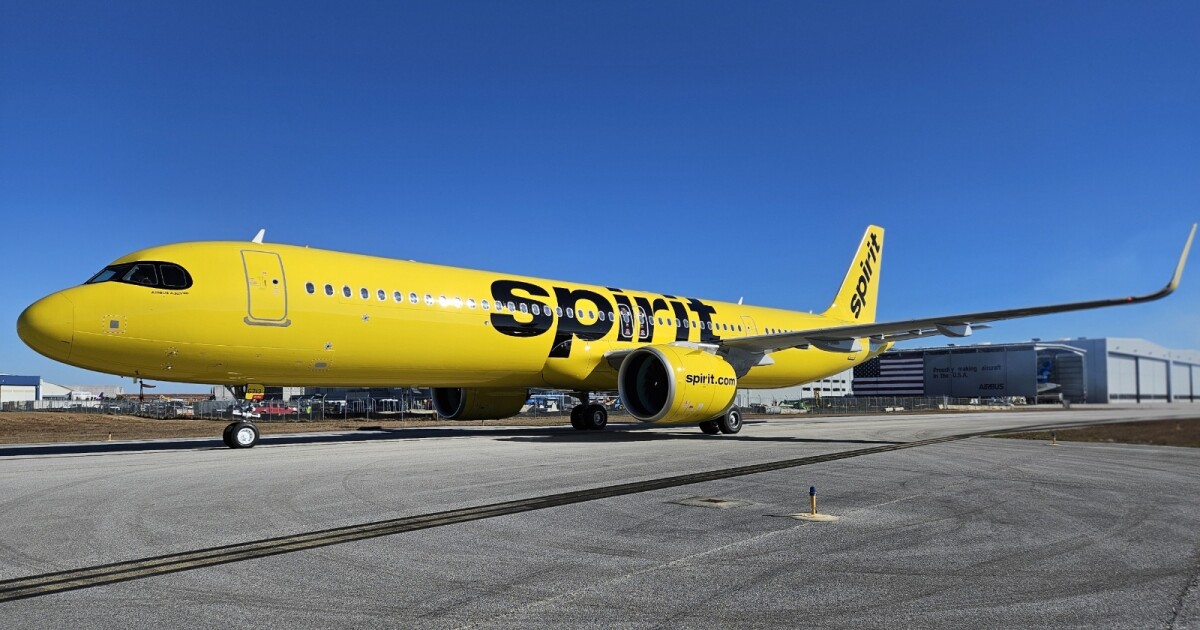In the clearest sign yet that bankruptcy is on the itinerary, Spirit Airlines warned early Wednesday that it is preparing for a “statutory restructuring” if it successfully renegotiates terms with its bondholders.
A bankruptcy reorganization would wipe out the stock value for the budget airline. Shares dropped to about $1 in pre-market trading, giving the company a market value of just over $100 million.
It had over $3 billion in debt at the end of June.
Spirit said in Wednesday’s early morning filing with the Securities and Exchange Commission that its talks with more of its bondholders “have remained productive,” but it will not be filing its third quarter financial statements on time.
Spirit has about 4,000 employees in South Florida. It is the largest passenger airline based in the state and it’s a major presence at the Fort Lauderdale-Hollywood International Airport where it was responsible for 35% of the passenger traffic in September.
In April, the company moved its headquarters from Miramar to a newly built $250 million office and training center in Dania Beach.
Spirit also warned in Wednesday’s filing that its business continues shrinking. Third quarter revenues fell about $60 million, which it blamed in part on no longer charging passengers to change and cancel tickets. Meantime, its expenses have continued climbing due to higher aircraft rental costs, higher wages and other pressures.
The result is Spirit expects its profit margin to fall compared to a year ago. The airline has not reported an operating profit since before the pandemic.
COVID-19 debts
Spirit’s borrowing problems go back to the early months of COVID-19 when airline travel came to an standstill for months. The company received millions of dollars in aid from the federal government. It also borrowed hundreds of millions of dollars in IOUs backed by its frequent flier program and brand.
READ MORE: How pandemic borrowing against its brand is costing South Florida’s Spirit Airlines now
While those bonds are not due to be paid off until the next two years, they are subject to a separate agreement with the company that processes credit card payments for Spirit.
That company has given Spirit until Dec. 23 to renegotiate about $1 billion of the airline’s COVID-era bonds. The credit card processing company wants to make sure it is not stuck with having to pay back passengers who booked and paid for flights in the future but were unable to fly because of business trouble at Spirit.
Spirit said a bankruptcy is not expected to effect employees or customers. It warned in late October that it expected to cut its workforce as part of an effort to save $80 million. Those cuts are expected to begin early next year.
Even as air travel came roaring back, Spirit’s low-cost, budget-minded business model was challenged as larger airlines rushed to attract passengers and fill seats. The company also has been hurt by troubles with engines on some of its newest planes. The issue has meant Spirit has had to ground some of its fleet as repairs are made.
In recent weeks, Spirit has been talking with fellow ultra low cost carrier Frontier about a possible merger. This was the second time in three years the two carriers have discussed teaming up. In fact, Spirit and Frontier announced a $2.2 billion deal in 2022. Then, JetBlue got involved and made a better offer to buy Spirit for $3.8 billion. However, the federal government sued and a federal judge blocked the merger over concerns it was anti-competitive. JetBlue and Spirit dropped their appeals efforts in 2024.
Earlier this week, a Spirit plane that had taken off from Fort Lauderdale was hit by gunfire as it approached the airport in Port-au-Prince, Haiti. A flight attendant was injured. The plane landed safely in the Dominican Republic.

